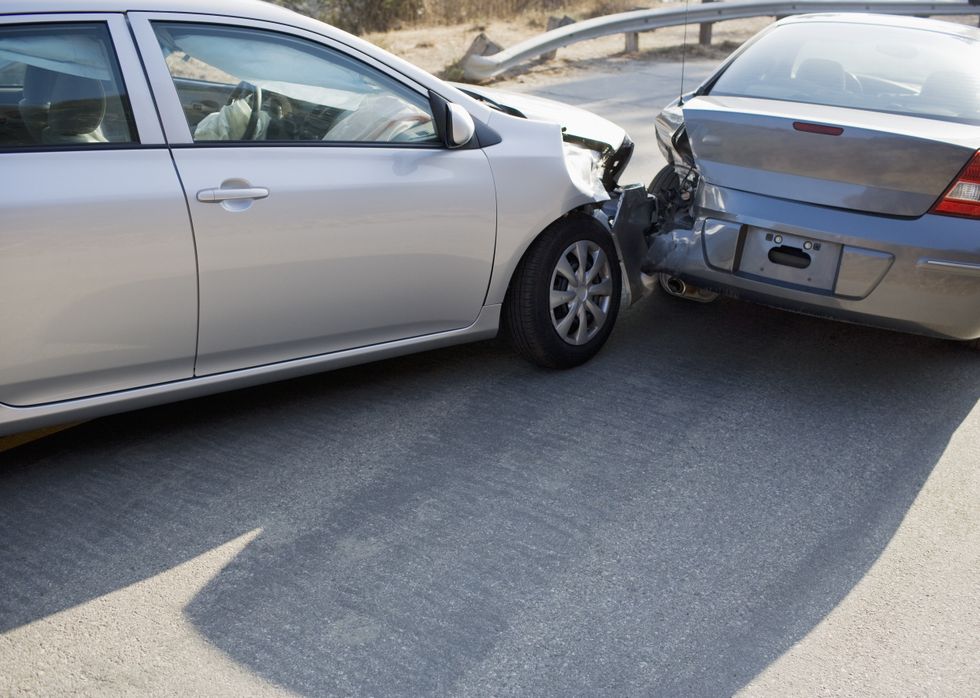New motoring rules are set to launch later this week which will see new speed limiting technology installed in all new cars, with questions remaining over whether this will be adopted across the nation.
On Sunday, July 7, the European Union will require all new vehicles to be fitted with Intelligent Speed Assistance (ISA) systems to tackle road safety and follows on from previous rules in 2022.
The New Vehicle General Safety Regulation (GSR2) will “prompt and encourage drivers to slow down when they are over the speed limit” through accelerator control or other types of feedback, including haptic, visual and audio.
Thatcham Research stated that the new GSR2 policies mean that vehicles sold in the UK will use EU specification software as manufacturers attempt to address the issues around EU-specific variants.
Do you have a story you’d like to share? Get in touch by emailingmotoring@gbnews.uk
All new cars manufactured in the EU will need to have ISA technology installed
PA
These would be quite difficult for manufacturers to create and likely force prices higher when bringing new vehicles to the market.
Northern Ireland will adopt the GSR2 requirements following the EU-type approval process as a result of the Northern Ireland Protocol, which Thatcham said would add to existing concerns.
The Department for Transport has commissioned research to look at the benefits and implications of introducing such technology in Great Britain, with a response to the new ISA systems expected “in due course”.
If the Advanced Driver Assistance Systems (ADAS) were to be introduced, consultations and legislation would be required to amend the GB-type approval scheme, which would likely be a lengthy process.
Yousif Al-Ani, principal engineer – ADAS at automotive risk intelligence company Thatcham Research, commented on the upcoming rules, saying that crash avoidance was the future of automotive safety.
He added: “The UK is yet to sign up to GSR2 which vehicle manufacturers will adhere to across Europe.
“The technology mandated by this directive is already found in most new cars and the UK could be at risk of falling behind in automotive safety by not adopting it.
“As ADAS is increasingly fitted to cars, vehicle manufacturers will need to address concerns from drivers that these systems, such as Emergency Lane Keeping Systems, interfere with their driving experience.”
The expert stated that manufacturers face a “real challenge” when looking to strike a balance between safety, performance and integration. It will also need to assess the impact it will have on motorists who are adapting to the new technology.
Several safety features are included under the umbrella of ADAS, including Intelligent Speed Assist (ISA), Autonomous Emergency Braking (AEB), Driver Drowsiness and Attention Warning (DDAW), and Emergency Lane Keeping Systems (ELKS).
While the ISA technology must be included in all new vehicles, drivers have the ability to disable the features, although it will be turned back on automatically every time the car is restarted.
Experts have warned that the ISA technology could sometimes be inaccurate as a result of incorrect or outdated maps, highlighting the need for drivers to ensure their software is up-to-date.
LATEST DEVELOPMENTS:

It is hoped the new technology will crack down on the number of accidents on the road
GETTY
Temporary road signs and speed limits may also pose an issue, which will likely lead to more drivers overriding the technology by pressing on the accelerator if they think this will make them safer on the road.
A further law change will take place in June 2026 when the European Union will mandate further road safety measures including Advanced Driver Distraction Warning (ADDW) and extra pedestrian and cyclist emergency braking systems.

